Christopher Priest, July 14, 1943 — February 2, 2024
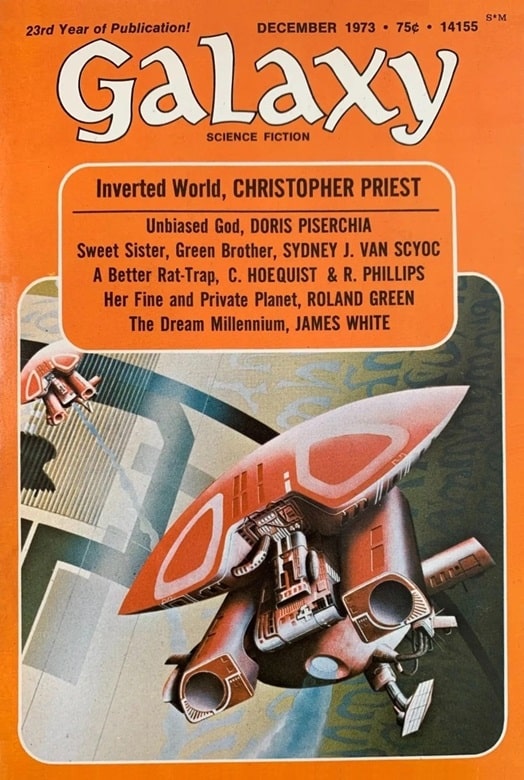 |
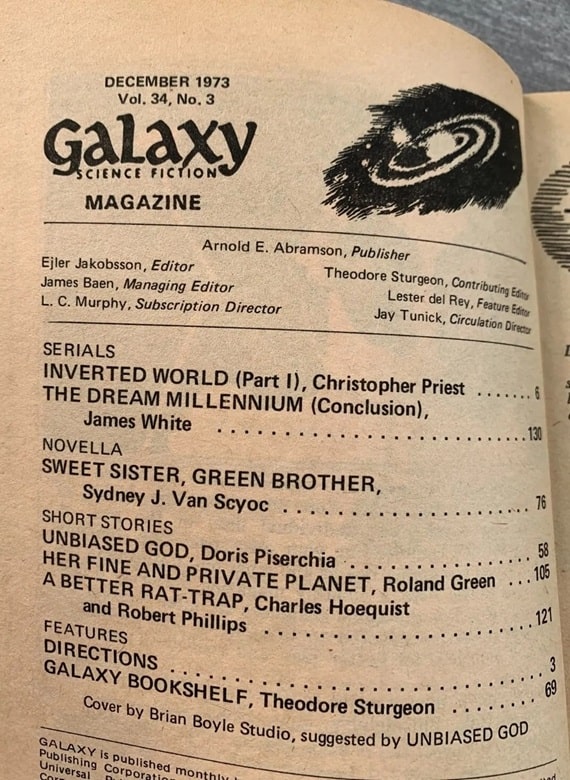 |
Galaxy December 1973, containing Part I of The Inverted World. Cover by Brian Boyle
I find myself writing another obituary for a major SF writer — this has been a terrible couple of months. Christopher Priest, one of the true giants of our field, has died at 80. He is survived by his partner, Nina Allan, a brilliant SF writer in her own right. (I suppose Priest had a “type,” as his two ex-wives, Lisa Tuttle and Leigh Kennedy, are also first-rate SF writers.)
When did I first know of Christopher Priest? That would have been when his novel, The Inverted World, was first serialized in Galaxy, December 1973 through March 1974, or at least when I first read the book. I have a probably false memory of reading the serial, which would have had to have been in back issues, as I first bought Galaxy in August of 1974. So likely I actually read the paperback from 1975. Be that as it may, the novel purely blew me away. I quickly read Darkening Island (the American title of his novel Fugue for a Darkening Island) and was entranced by its radically non-linear narrative, something new to teenaged me.
Christopher Priest paperbacks: Fugue for a Darkening Island (New English Library,
September 1973), Inverted World (New English Library, June 1975), The Space Machine
(Popular Library, January 1978), Indoctrinaire (Pan Books, 1979), The Perfect Lover
(Dell, January 1979), and An Infinite Summer (Dell, June 1981). Covers: uncredited,
Lucinda Cowell, uncredited, Geoff Taylor, Walter Bachinsky, and Don Punchatz
Christopher Priest’s subsequent work continued to be remarkable. His story “An Infinite Summer” is one of my favorite SF stories of all time. His novel A Dream of Wessex (aka The Perfect Lover) is beautiful, and subsequent works like The Affirmation, The Prestige (which was made into a fine movie by Christopher Nolan), The Separation, and The Extremes are also excellent.
As with many writers, his production of short stories slowed after he began writing novels, though he published a number of them early in his career, after his first sale to SF Impulse in 1965. Besides “An Infinite Summer” I highly recommend “Palely Loitering.”
The Affirmation was the first novel in a long series of works about The Dream Archipelago. The Dream Archipelago stories are set in a sometimes idyllic, sometimes less so, set of islands spanning the equator between two warring continents; and they may be set on another planet, or in the dreams of people, or perhaps even our world is dreamed by the people of the Archipelago.
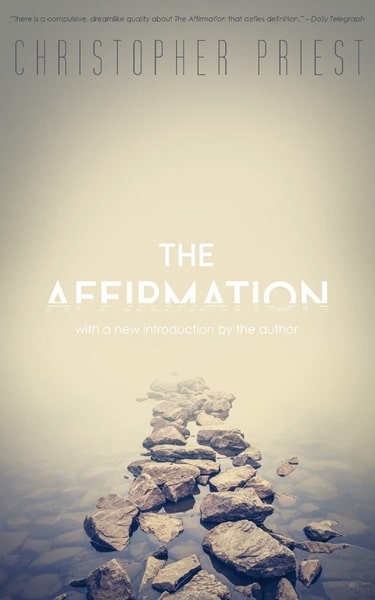 |
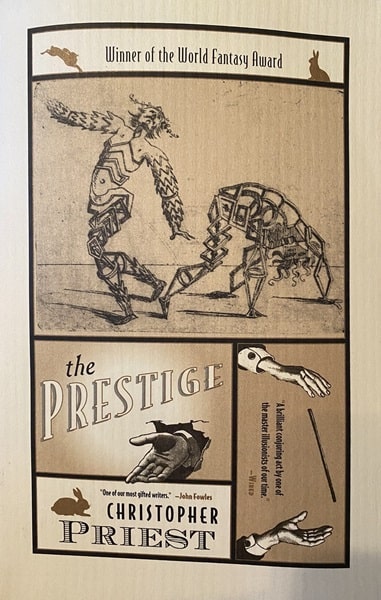 |
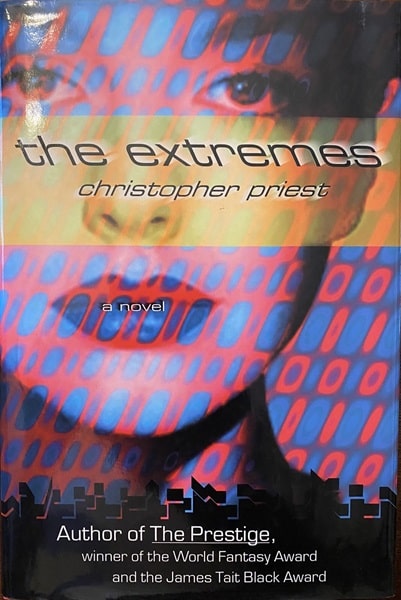 |
The Affirmation (Valancourt Books, November 11, 2014), The Prestige (Tor, September 1997), and
The Extremes (St. Martin’s Press, May 1999). Covers: Uncredited, Giovanni Battista Bracelli, Scott Levine
The Archipelago seems ever-changing. It features in the collection of that title, and as mentioned in The Affirmation, but also in four of his late novels: The Adjacent, The Islanders, The Gradual, and The Evidence. (Yes, Priest liked short titles starting with The!) This congeries of novels and stories (noting that some of the novels comprise a set of loosely linked stories) is astonishingly rewarding both taken one at a time and considered as a whole — a major achievement that I think has yet to be fully appreciated.
Priest also did interesting critical work, perhaps most notably his long essay “The Book on the Edge of Forever” on the failure of Harlan Ellison to publish The Last Dangerous Visions in a timely fashion (or, indeed, ever.) This was of importance to Priest in a personal sense, as “An Infinite Summer” was originally intended for that anthology, though Priest withdrew it after Ellison (who had asked for a story) had not responded in four months time.
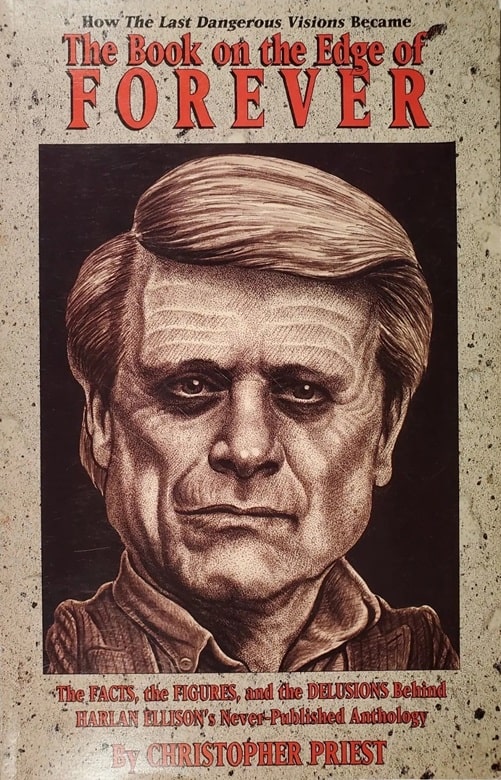 |
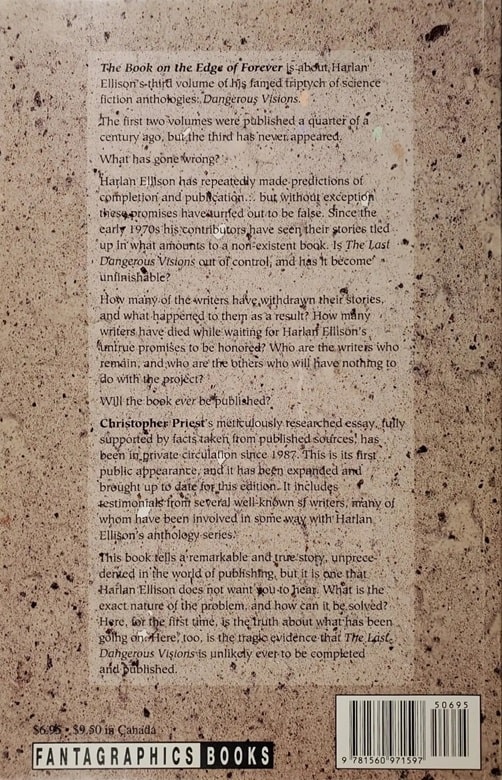 |
The Book on the Edge of Forever (Fantagraphics Books, June 1994). Cover by Drew Friedman
Christopher Priest is indubitably one of the greatest SF writers of the last half century or so. I have thought that for a long time, and I went so far as to wonder, a couple of years ago, why he had not been named an SFWA Grand Master.
Yet there are reasons, most of which redound in Priest’s favor, such as his suspicion of awards in general, and his past resignation from SFWA. (I hasten to add that I don’t mean this to say that I oppose SFWA — I am an Associate Member myself — only that Priest did so for principled reasons based on his own views.) Now we know he will never be named an SFWA Grand Master — be that as it may, he certainly was a Grand Master of SF writing.
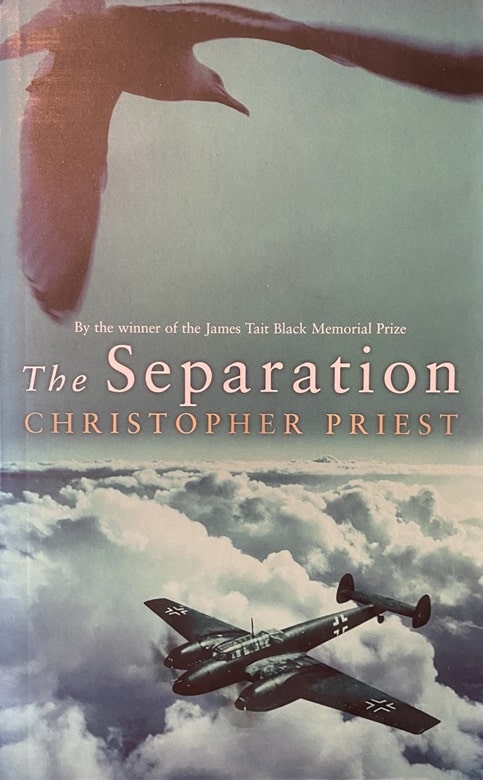 |
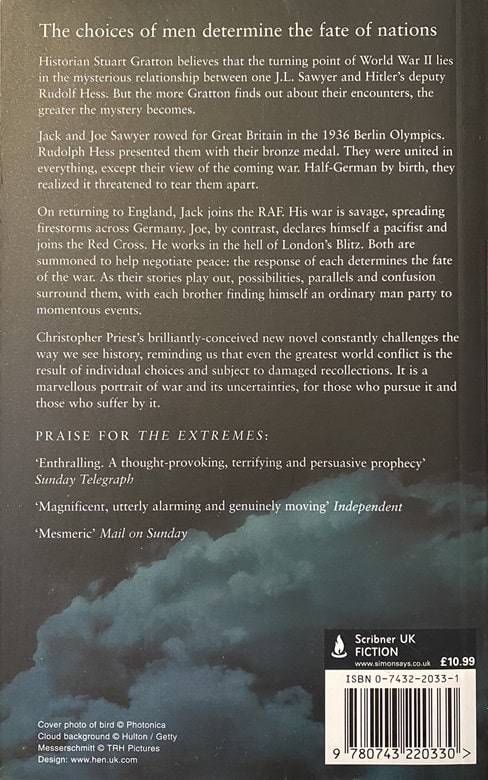 |
The Separation (Scribner UK, August 5, 2020). Cover by Henry Steadman
To conclude, here are two entirely inadequate pieces I’ve written about a small subset of his work.
Capsule Reviews of A Dream of Wessex, Indoctrinaire, The Separation, and “The Discharge.”
Review of The Extremes.
Rich Horton’s last article for us was a Retro Review of the August and October 1972 issues of Fantastic magazine. His website is Strange at Ecbatan. Rich has written over 200 articles for Black Gate, see them all here.
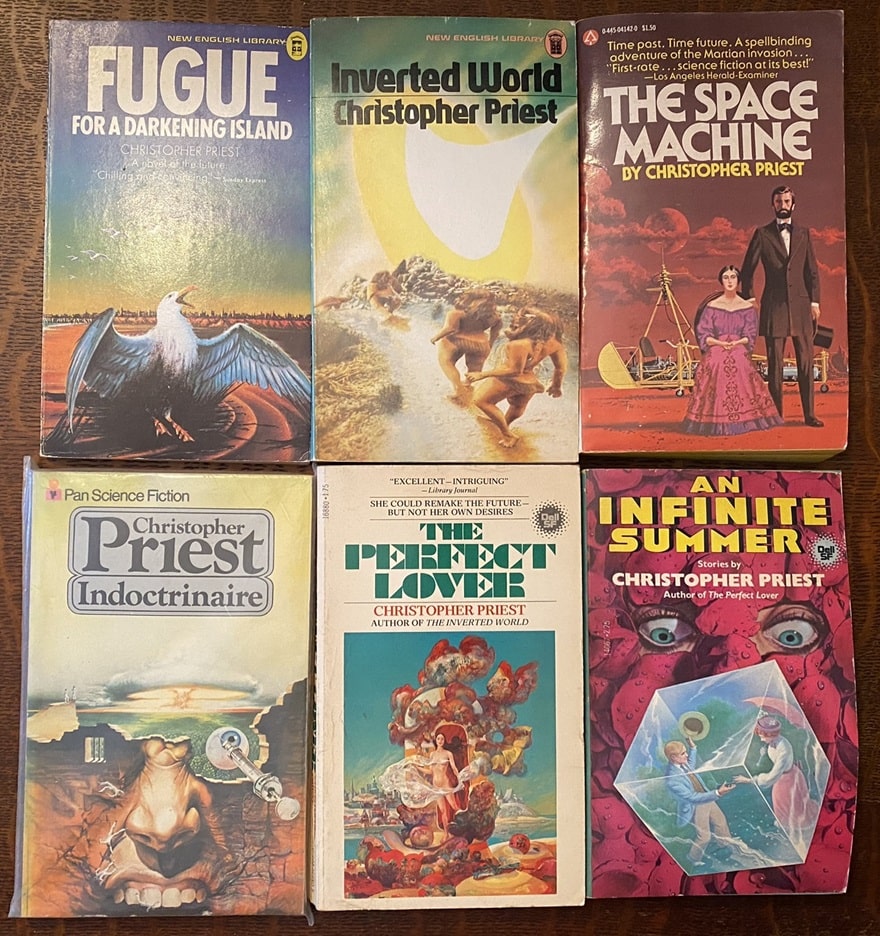
I am definitely going to miss having new Christopher Priest novels to read, but the novels he DID write are very re-readable, and I will be doing so. I, too, fell in love with The Inverted World when it first came out, and I still have that paperback version, as well as most of his other books. Thanks for posting this summary of his work, Rich.
It was while reading Rich’s obituary that I realized just how many novels by Christopher Priest I still have left to read! There’s been so much attention to his recent work that I quite overlooked books like The Inverted World, The Perfect Lover, and even his War of the Worlds/The Time Machine mash-up The Space Machine.
[…] To repeat myself: The late Christopher Priest (1943-2024) was one of the greatest SF writers of his generation. He made an early splash with novels like Inverted World and A Dream of Wessex (aka The Perfect Lover), followed by The Prestige, which was made into a successful movie by Christopher Nolan, and then by any number of stories and novels in his Dream Archipelago sequence. I wrote an obituary of him for Black Gate here…. […]